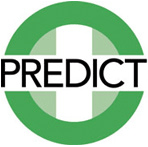PROMPT BOLUS Study
PRagMatic Pediatric Trial of Balanced versus NOrmaL Saline FlUid in Sepsis (PRoMPT-BOLUS)
Childhood sepsis is a global health issue: 25.2 million cases worldwide every year, causing 3.4 million deaths, with an annual hospitalisation cost in the US alone of $7.2billion. The World Health Organisation and the US Centers for Disease Control and Prevention have called for optimized therapies.
Preventable childhood deaths from sepsis continue to occur in Australian hospitals, usually within 24 hours of hospitalization from refractory shock. The treatments for shock include fluids, inotropes, and steroids, usually in that order. The evidence supporting each of these therapies is of low quality, resulting in weak treatment recommendations.
The most effective and safest crystalloid fluid to use for initial resuscitation of septic shock has not yet been established. Two types of crystalloids are used for resuscitation in sepsis: 0.9% Saline and Balanced Fluids (Lactated Ringer’s solution, Hartmann’s solution, and PlasmaLyte). Balanced Fluids have well-established biologic and physiologic advantages over 0.9% Saline and prior studies have associated balanced fluids with reduced risk for MODS, acute kidney injury, immune dysfunction, coagulopathy, and death when compared to 0.9% Saline in a variety of conditions. However, in the absence of paediatric-specific data, 0.9% Saline remains in overwhelming use worldwide for initial fluid resuscitation and is currently recommended by Paediatric Advanced Life Support (PALS), the organisation setting the standard for acute care in developed countries.
We will therefore undertake the PRoMPT-BOLUS study to test the relative effectiveness and safety of Balanced Fluids versus 0.9% Saline fluid resuscitation in children with suspected septic shock.
The aim of this study is to determine if fluid resuscitation with Balanced Fluid will improve clinical outcomes compared to fluid resuscitation with 0.9% Saline in paediatric septic shock. We will monitor the safety of Balanced Fluids versus 0.9% Saline in paediatric septic shock.
This is an international study lead by the PECARN network in the USA, that will also involve the Canadian PERC and Australasia/New Zealand PREDICT networks. The study has also been endorsed by the Australian College of Emergency Medicine Clinical Trials Network (ACEMCTN0005) and the Australian and New Zealand Intensive Care Society Paediatric Study Group (PSG1920-02).
Study design
International, non-blinded, randomised controlled trial.
Chief Investigators
Chief Investigators Australia/New Zealand
Elliot Long (Royal Children’s Hospital)
Franz Babl (Royal Children’s Hospital; Murdoch Children’s Research Institute; Centre for Integrated Critical Care, University of Melbourne)
Ed Oakley (Royal Children’s Hospital)
Stuart Dalziel (Starship Children’s Hospital, Auckland)
Meredith Borland (Perth Children’s Hospital)
Chief Investigators United States
Scott Weiss (Children’s Hospital of Philadelphia)
Fran Balamuth (Children’s Hospital of Philadelphia)
Nate Kuppermann (UC Davis Children’s Hospital)
Chief Investigators Canada
Graham Thompson (Alberta Children’s Hospital/University of Calgary)
Stephen Freedman (Alberta Children’s Hospital)
Timeframe
2020 – 2025
Funding
Medical Research Futures Fund (ANZ)
National Institutes of Health (USA)
Canadian Institutes of Health Research (Can)
Site locations
- Royal Children’s Hospital, Melbourne – lead hospital (CPI Elliot Long)
- Perth Children’s Hospital, Perth (PI Meredith Borland)
- Women’s and Children’s Hospital, Adelaide (PI Amit Kochar)
- Monash Children’s Hospital, Melbourne (PI Simon Craig)
- Children’s Hospital at Westmead, Sydney (PI Shefali Jani)
- Sydney Children’s Hospital, Sydney (PI Arjun Rao)
- Gold Coast University Hospital (PI Shane George)
- Queensland Children’s Hospital, Brisbane (PI Natalie Phillips)
- The Royal Darwin Hospital, (PI Anna Lithgow)
- Starship Children’s Hospital, Auckland (PI Stuart Dalziel)
- Kidz First Hospital, Middlemore, Auckland (PI Eunicia Tan)
Sample
PREDICT 2205, Total sites 8800, children aged > 2mths – <18 yrs.
Clinical Trial Registration
ClinicalTrials.gov :Identifier: NCT04102371
Contact
View entry on MCRI Projects page.

